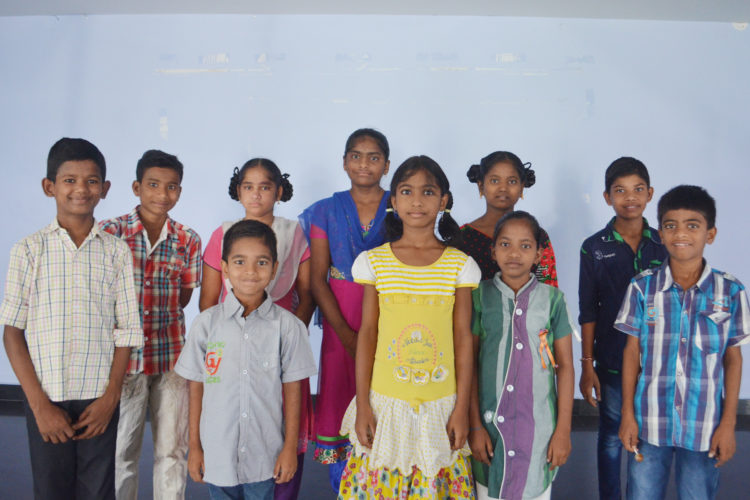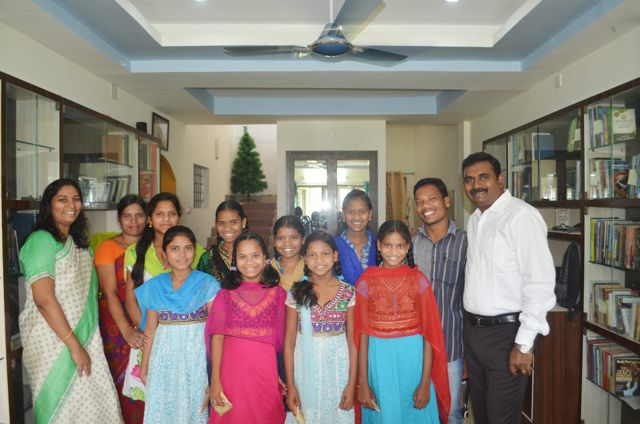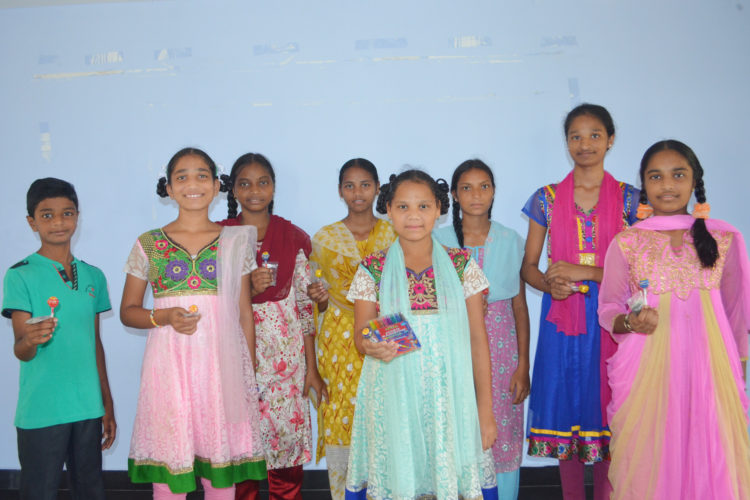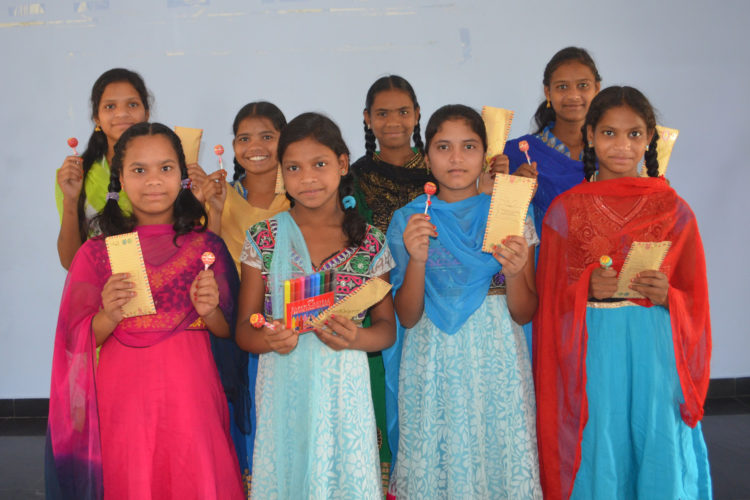We are pleased to announce that all of the children in both the Victory Home and Mercy Home have successfully completed their examinations and have been promoted to the next class by securing a good score.
We thank God that all the children are healthy and enjoying their holidays together at the Victory Home in Srikakulam. During the school holidays they are able to play, attend Vacation Bible School, and develop friendships with a variety of other children.

Victory Home Children

Mercy Home Children
Recently all of the children received a variety of gifts sent by Rebhecca, as they have been praying for her health for the past two years. School will resume for the new school year on 16 June 2016. Weather during the school holidays has been sunny (hot) in the afternoons and suffocating temperatures at night. However, in the midst of the prickly summer heat they have enjoyed a few sudden rainfalls, which made everything a bit cooler.

Victory
Mercy
Insight in India’s Schools
According to the 2009 Right to Education Act (RTE), schooling is free and compulsory for all children from the ages of 6 to 14. However, improvements are slow being implemented and disadvantaged groups may still not have adequate access to education. A high value is placed on education, as it ensures a stable future. This is why school runs from Monday through Saturday. Many parents would like their children to attend private English medium schools, but places are limited and fees a prohibitive for the poor.
Most Indian schools (whether Government or private) have a strong focus on academic subjects, with little scope for creativity and few or no extra-curricular activities. Traditional schooling methods tend to emphasise rote learning and memorisation, rather than encouraging independent or creative thinking. There is a strong focus on examinations from an early age. This makes the atmosphere at Indian schools very competitive.
According to a global education report of 2004, India’s ranking was 106 out of 127 countries in the education sphere. Although India is amongst the ten fastest growing economies in the world, India has the largest number of illiterates by far – close to 40%. Sixty years after independence, possibly the greatest challenge India faces now is the failure to educate its citizens, notably the poor.
Education is believed to be the only means for a developing nation like India to develop widely and hence the RTE (Right To Education) Act was implemented in the year 2009 enforcing free and compulsory education to all children between 6 to 14 years. RTE Act’s main goal has been to achieve 100% literacy rate across the country and increase the awareness levels.
The education spend in the country is largely lop-sided, as the private sector has only 11% contribution in the spending. This leaves the main chunk of responsibility largely on the government sector. Also, the quality of infrastructure and education overall needed much to be desired.

Specifically talking about government owned schools, we found some disturbing data, that was sadly not unexpected. According to a recent survey conducted in 780 Government Schools across 13 Indian States key facilities (including toilets/ drinking water) were mostly found missing or in a poor condition. The survey further shows that while the RTE Act called for sufficient infrastructure, less than 5% schools have all the 9 facilities mentioned in the act. Over 30% schools had no toilets. Many girls quote this has a big reason for dropping out of school. Over 60% had no playgrounds, so it’s no wonder that we struggle with health and fitness both.
(The above three paragraphs are excerpts taken from the Hindu and India Times)

